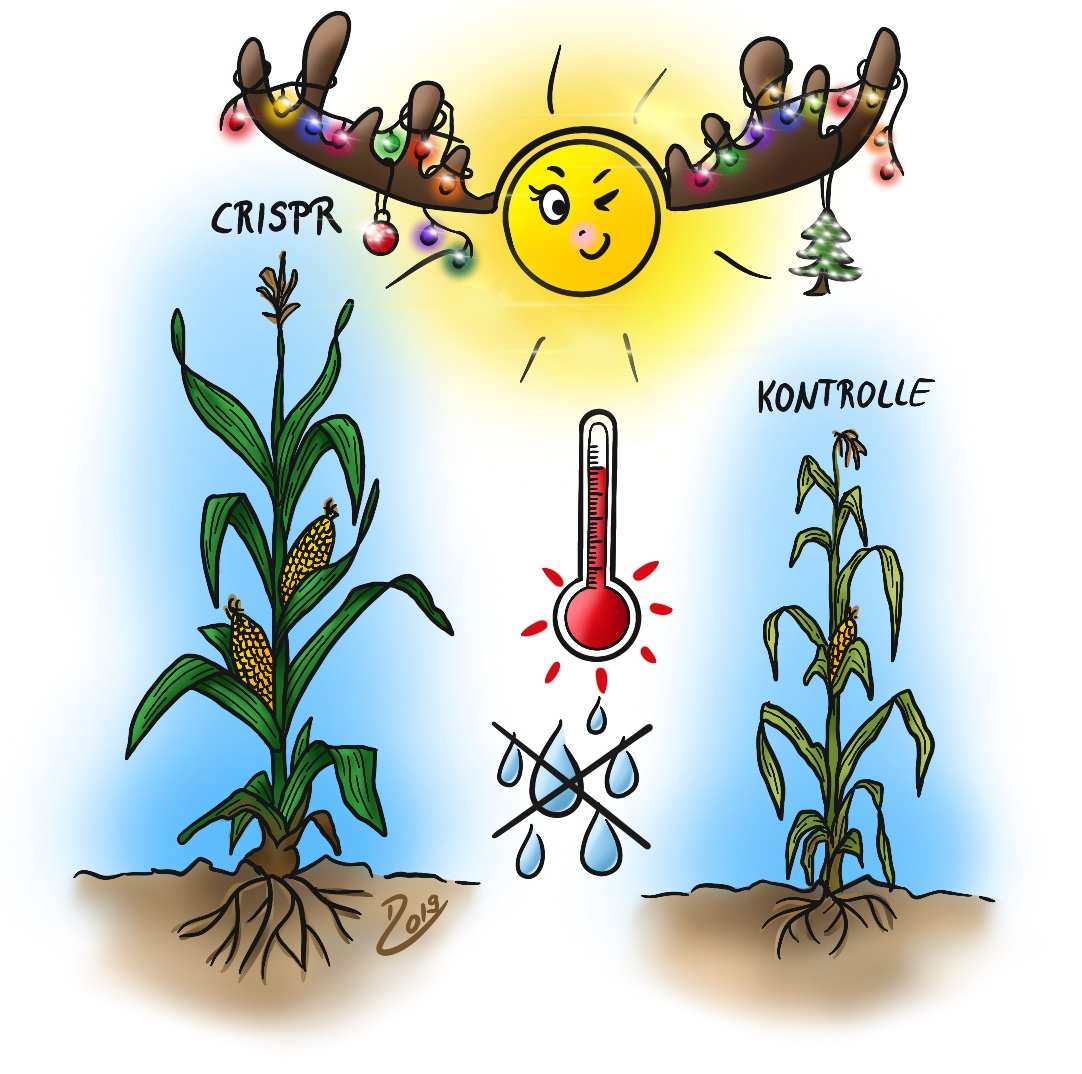11
back


Crop: Maize (Zea mays)
Property: Drought tolerance
It can be assumed that extreme weather events such as heat waves, droughts or heavy rainfall will become more frequent and more severe in the future due to climate change. Scientists around the world are therefore working to cultivate crops which are better suited to withstand external environmental influences. Scientists at DuPont Pioneer have found that corn plants with increased activity of a particular gene can cope better with extreme drought. Using the CRISPR/Cas technique, they were able to rewrite this gene to remain active under stress conditions so that growth does not cease when water is scarce. As a result, the edited plants achieved higher yields than the control group under drought stress conditions. Unlike the previous examples, no point mutation was produced. Rather, to repair the double strand-break induced by CRISPR/Cas, an additional gene was inserted which served as a repair instruction of the cut sequence. This allowed larger, but still precise genetic modification of the material.
Publication
| Title | ARGOS8 variants generated by CRISPR-Cas9 improve maize grain yield under field drought stress conditions |  |
| Authors | Jinrui Shi et al. | |
| Country | United States | |
| Journal | Plant Biotechnology Journal | |
| Year | 2016 | |
| DOI | doi:10.1111/pbi.12603 |
